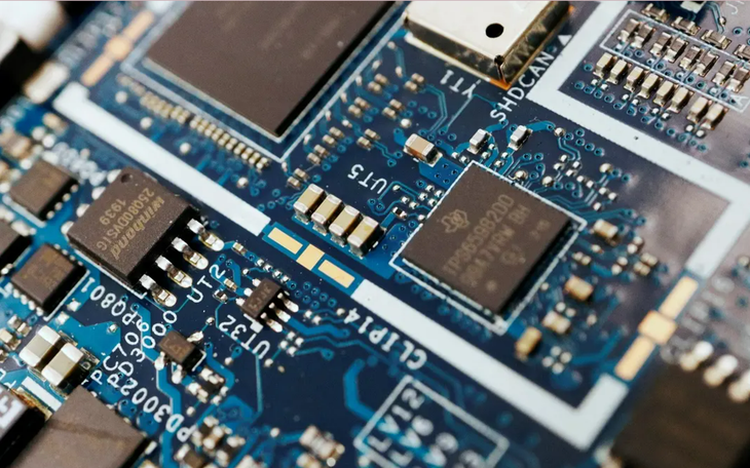
Semiconductor chips are seen on a circuit board of a computer in this illustration picture taken February 25, 2022. Photo: Reuters
Therefore, the government's recent proposal to waive or reduce land lease fees for semiconductor projects to foster the development of this industry in Vietnam is entirely appropriate, especially as the country aims to build an independent and self-reliant economy based on high technology.
In fact, such policies have long been implemented to encourage and attract foreign direct investment (FDI) into Vietnam.
Naturally, these efforts have yielded positive results.
Many major foreign and multinational industrial corporations have relocated or built new manufacturing facilities in Vietnam, with Samsung Group from South Korea being a prime example.
However, if the host country's objective is to build its own related industries – specifically, to ensure that these industries continue to exist and remain viable even after FDI enterprises withdraw – then the effectiveness of such policies becomes a significant question.
At this point, it is not enough to propose one or a few policy measures; the government needs a comprehensive and holistic strategy to build the semiconductor industry in Vietnam. So, what must we do to achieve that goal?
In terms of context and objectives, the current situation is entirely different from when Taiwan's TSMC – the world's largest semiconductor manufacturer – was founded in 1987. Today, the global landscape already includes TSMC and many other companies that are producing and supplying chips across various stages of the value chain.
As a result, for Vietnam to build its own semiconductor industry, it will have to face intense competition.
If the only goal is to attract foreign corporations to relocate their existing production facilities to Vietnam in order to benefit from financial incentives like tax breaks, reduced land lease fees, or even cheap labor, then such an approach may be outdated – or worse, risky.
For instance, chip manufacturing cannot rely on simple, low-cost labor; and there is the risk of having factories without any accompanying technology transfer.
Moreover, in today's context, policy proposals should not come solely from academic research departments or advisory units but must arise from collaborative dialogue and exchange among the government, independent consultants, and businesses themselves.
Because semiconductors are a global industry, any effort to develop it from the ground up should be guided by deliberate choices regarding which consultants and enterprises will take the lead in advising and supporting the initiative.
Consultants can offer independent, multifaceted evaluations, while businesses can provide insights into their actual needs.
After all, no company – not even TSMC – can do everything in the semiconductor field. Most focus solely on manufacturing, while leaving design or packaging to others.
Vietnam would do well to approach the issue in the same way.
* The Vietnamese original was written by lawyer Nguyen Tien Lap.


Max: 1500 characters
There are no comments yet. Be the first to comment.